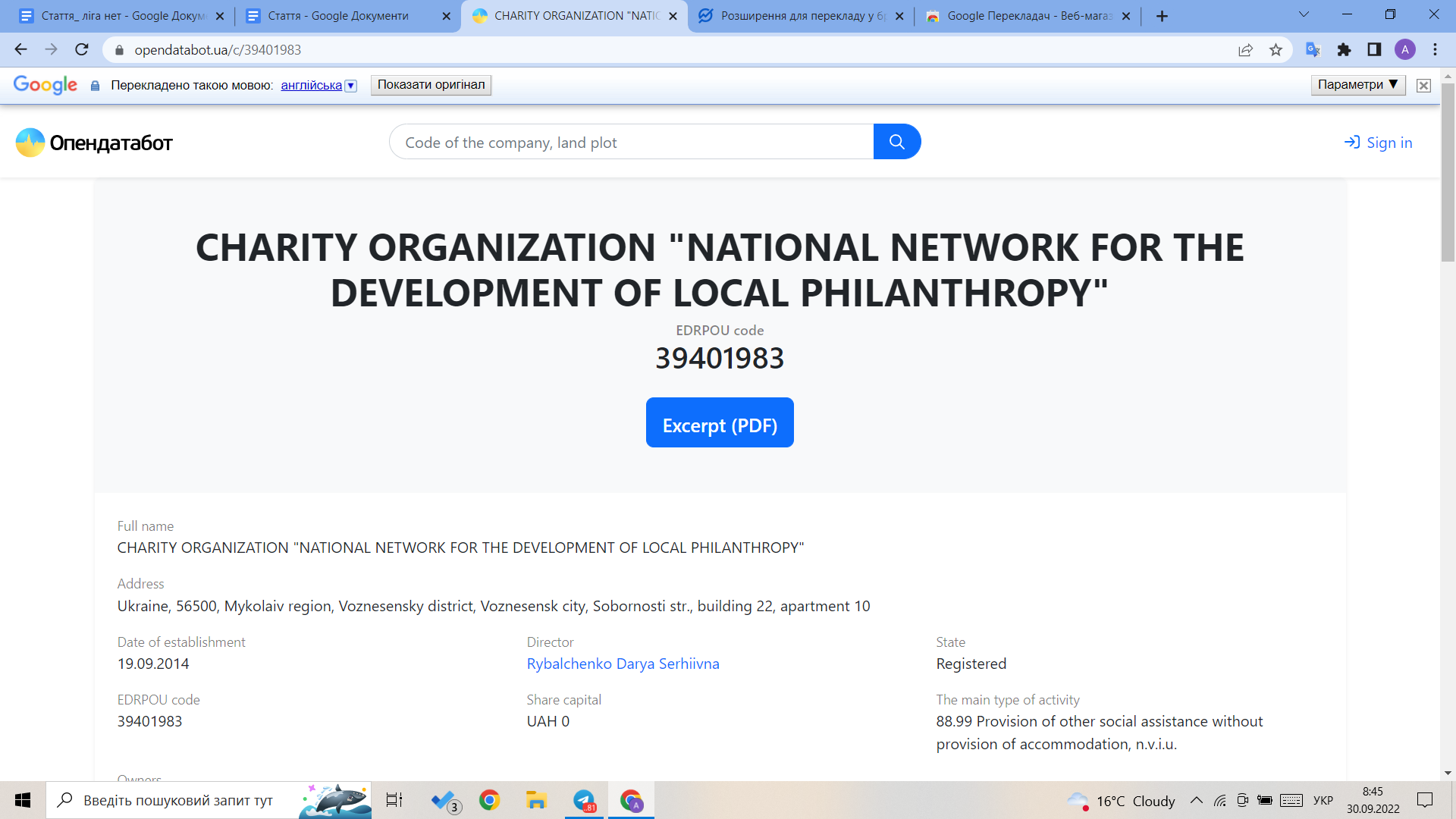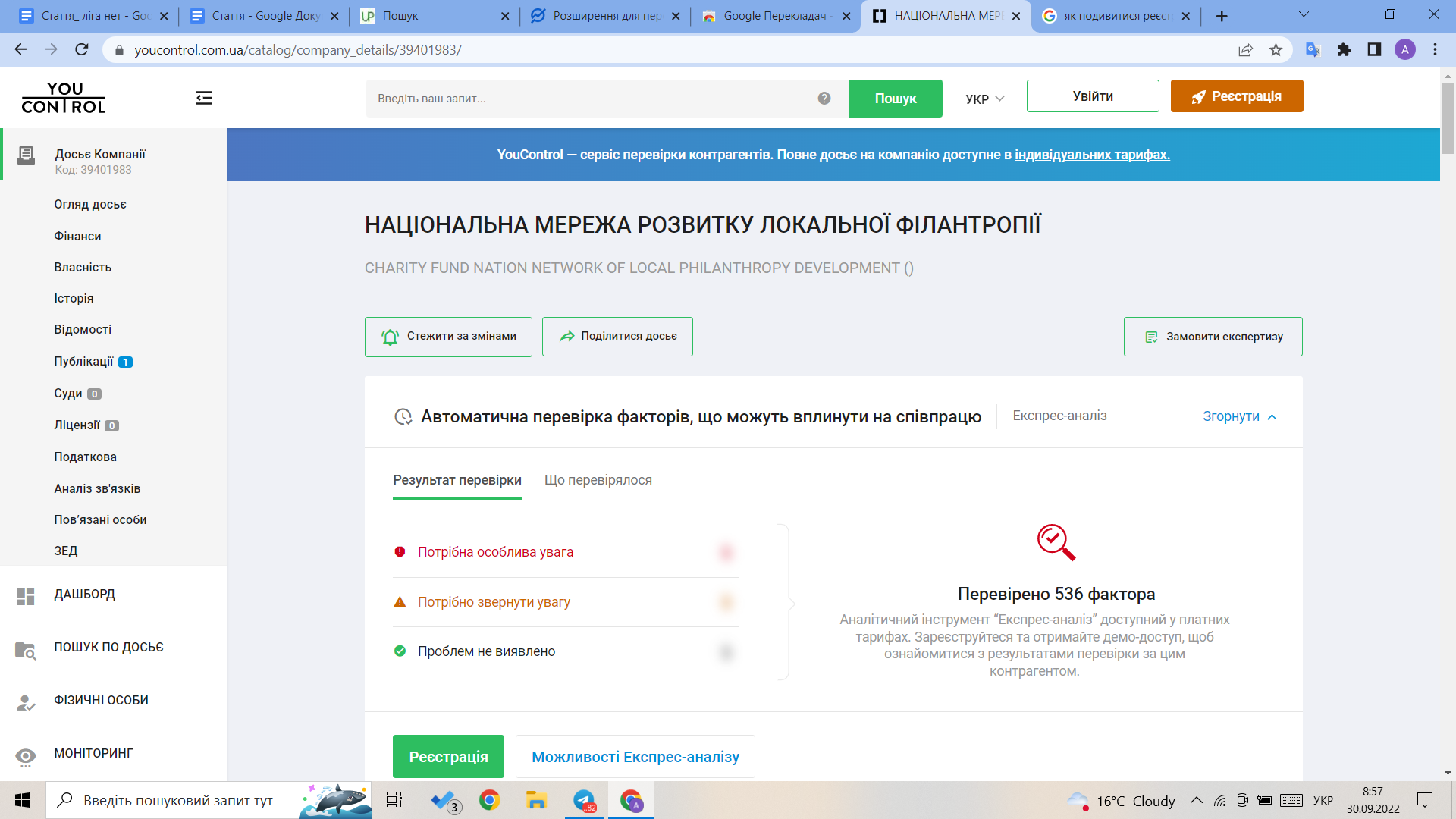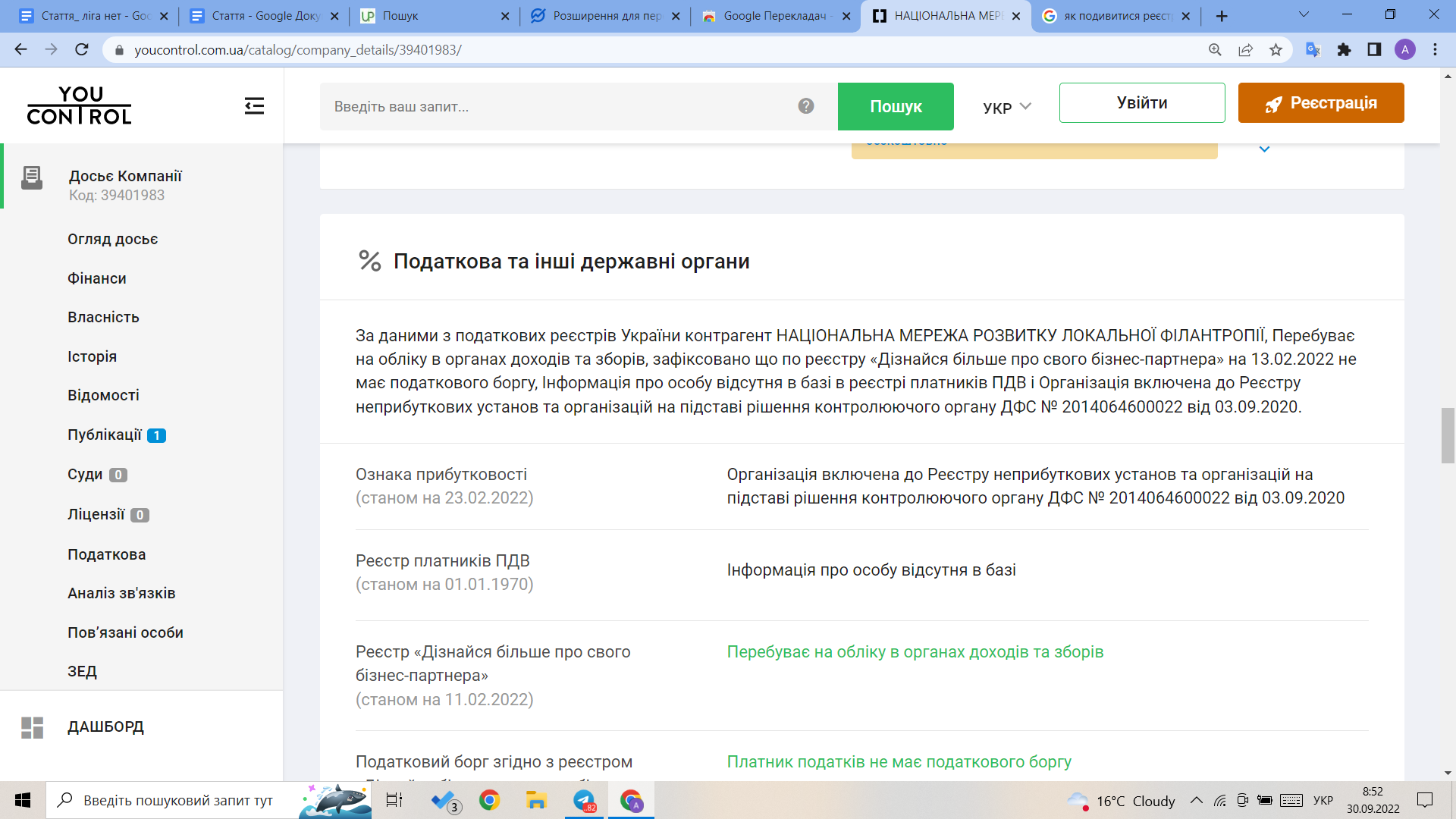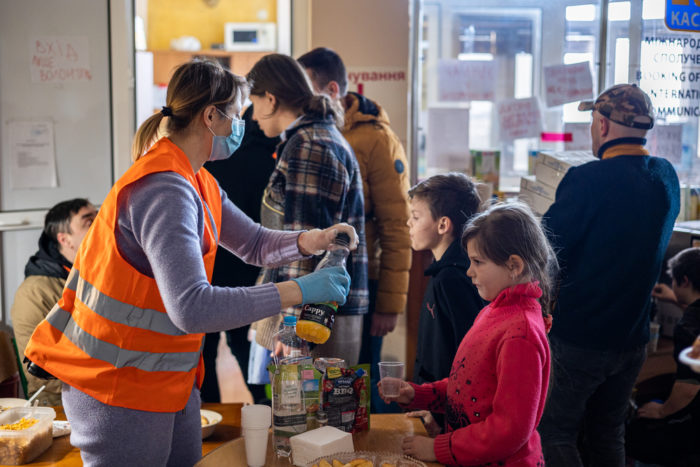A full-scale invasion necessitates a complex and multi-step humanitarian response. Unforeseen obstacles and force majeure are encountered during the implementation of humanitarian projects. Cost estimates do not always match reality. Taking into account all potential changes is often a challenging task.
The National Network for the Development of Local Philanthropy, which brings together 20 organizations from across Ukraine, is willing to cooperate with international organizations and is eager to share its knowledge about risks and ways to mitigate potential changes and their impact.
Unfortunately, the level of demand exceeds the current offer. Urgent response is complicated because even certain goods’ warehouses abroad are empty for some time. The situation makes it challenging to locate and deliver the necessary humanitarian aid.
For example, due to a shortage, we waited for three months for MedAid’s special fund to supply a hospital with electric beds. To avoid these situations, our team tries to negotiate with suppliers in advance, outline potential risks, and, most importantly, ways to mitigate them.
Local organizations need the opportunity to independently solve this issue because the lack of express agreement on project financing makes it impossible to reach an agreement with contractors. The deal is feasible to go through with a letter of guarantee from the donor.
For the search for a contractor to be worthwhile, you need to hold preliminary discussions between the local organization and the donor to reach an agreement in advance on supporting this or that humanitarian project. Sometimes the cost of product delivery exceeds the price of the product itself. These adjustments should also be factored into calculations.
The miscalculation of logistics costs is one of the challenges.
During military operations, no one can guarantee that the planned route will be accessible at the exact time when the team is supposed to deliver the cargo. For example, pontoon bridges may be closed during certain weather conditions, which is impossible to predict. The item’s delivery costs must be flexible to account for this risk.
It is also worth noting that some costs cannot be calculated in advance.
For instance, product insurance will reduce the impact of specific risks. However, at the same time, it is impossible to estimate the cost of it in advance. Concurrently, insurance is essential during the implementation of large-scale projects to mitigate significant losses and lessen the impact of particular consequences in the event of insurance risks.
The National Network of Local Philanthropy, thanks to their experience cooperating with international organizations, recognizes that local organizations can do a good job at assessing the needs on the ground and effectively implementing humanitarian projects. The network is aware that international partners are wary of working with new organizations, especially if they are small, little-known, or newly founded.
At the same time, conducting a search using a small algorithm will help to account for risks (or mitigate the risks) and initiate new high-quality cooperation.
1. Social media
Every active fund and public organization has at least one social media page to share information about current projects, reports, and announcements. Dynamic social networks are a good indicator when deciding which organization to support, but they are not a guarantee.
2. Website
Some organizations exist solely online. You need to pay attention to the following aspects of the website:
- Reports availability. Numerous work initiatives were established during the war and lack financial data for the preceding years. However, they may also have success stories of ongoing initiatives dating back to the beginning of a full-scale invasion;
- The name of the organization’s head, founder, or representative. People have faith in one another. If there is no information, you should get questions;
- Partners. Check to see if anyone has previously supported this civil society body and if you know anyone from these organizations;
- The organization’s membership in certain communities, including network members, associations, and unions. Communities may not necessarily be the best option, but one can request a recommendation from the district.
3. Registration verification
In the bank details, where you may be asked to transfer funds, the program must include the legal entity’s registration code (YeDRPOU, ЄДРПОУ). One can use this code to verify the organization’s registration on the YouControl, Deltasoft, and Opendatabot websites. These services are typically offered in Ukrainian, but one can use Google Translate’s automatic functions.


What to check:
- Registration date. If the organization is registered after February 2022, one should make sure to ask for recommendations from the organization itself or the organization’s head;
- Head of the organization. Through the services, one can check if a person has any legally registered organizations, such as LLCs, private enterprises, or other organizations, or whether they are directors of other organizations. If this is the case, it is necessary to determine the trustworthiness of these businesses’ services: whether there are any tax debts, criminal or administrative violations, and so on;
- Founders of the organization, if specified;
- Is the organization on the non-profit register (indicated on some services)?

4. Reviews
You need to search for the organization’s name in Ukrainian in search engines and examine online reviews of this organization. Additionally, you can enter the name into a Facebook search and check for positive or negative comments.
What if the organization is on social networks but is not active and has no website?
- Ask for a recommendation from those who have previously assisted and donated to the organization;
- Search for photo and video testimonials from beneficiaries (so that the video indicates that this is assistance from the organization you are looking into);
- Ask for recommendations from partners – non-governmental organizations that assist, advise, and have more experience.
It may seem like a lengthy and detailed examination, but it usually takes up to 15 minutes.
Trust local organizations and work with them to implement practical and relevant humanitarian projects. Consider discussing all the details and risks, and, if possible, plan for flexible spending.
Thank you to everyone who has helped local organizations and Ukraine on their way to victory!
 Daria Rybalchenko, board head of Ukraine’s National Network of Local Philanthropy Development
Daria Rybalchenko, board head of Ukraine’s National Network of Local Philanthropy Development
Related:
- Local civil society supplied virtually all Ukraine humanitarian aid with nearly no funding – report
-
Verified ways to help Ukraine and the Ukrainian Army - “With start of invasion, foreign firms started selling us sh*t.” How Ukraine’s top military charity saves lives today
- How Ukrainian Americans have helped Ukraine (and how you can too)

